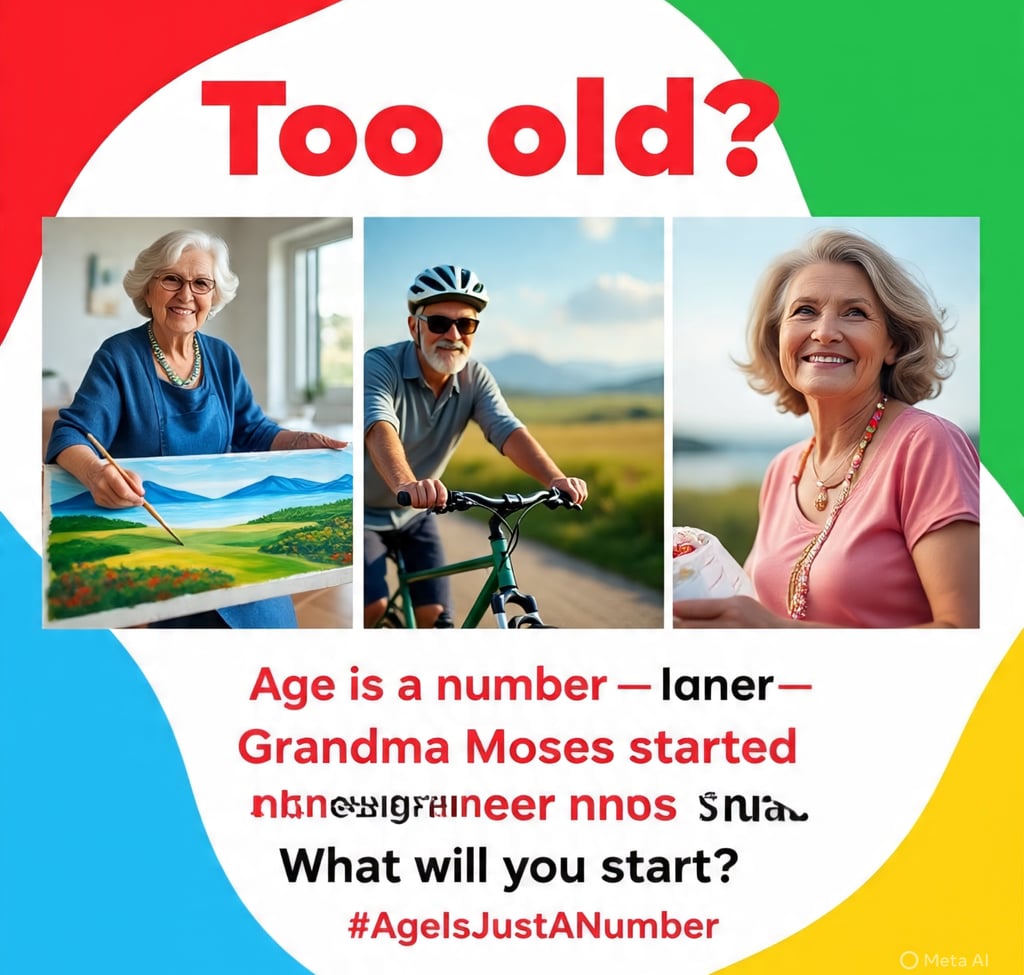Hobby at Any Age: Unlocking Joy, Growth, and Purpose
Javed Niamat
9/14/20253 min read


Starting a New Hobby at Any Age: Unlocking Joy, Growth, and Purpose
In today’s fast-paced world, many people believe that hobbies are luxuries reserved for the young or those with extra time on their hands. Yet research shows that starting a new hobby at any age can significantly enhance emotional well-being, improve mental sharpness, strengthen social connections, and even contribute to physical health. Whether you are 25, 55, or 85, it’s never too late to discover a new passion and reap the benefits that come with it.
Why Starting a Hobby Matters
Hobbies are not just activities to fill time—they are gateways to personal growth and fulfillment. Engaging in a new hobby:
Reduces stress and anxiety: Studies published in the Journal of Positive Psychology indicate that leisure activities lower cortisol levels, improving relaxation and mood.
Improves brain function: Learning new skills stimulates the brain, forming fresh neural pathways that help with memory, focus, and cognitive flexibility.
Builds resilience: Taking on challenges in hobbies equips us with patience and problem-solving skills transferable to daily life.
Promotes longevity: Research in Psychosomatic Medicine shows that engaging in enjoyable activities can lower blood pressure, reduce inflammation, and improve overall physical health.
Overcoming the Myth: "I’m Too Old to Start"
One of the biggest barriers to starting a hobby later in life is the belief that certain passions are only for the young. But examples from real life prove otherwise:
Grandma Moses, one of America’s most famous painters, began her painting career in her 70s and produced over 1,500 works of art.
Harland Sanders, better known as Colonel Sanders, founded Kentucky Fried Chicken in his 60s after years of trying different professions.
Diana Nyad swam from Cuba to Florida at age 64, proving that age is not a barrier to pursuing extraordinary goals.
These stories illustrate that it’s never too late to try something new. Instead of focusing on limitations, older adults can embrace hobbies as opportunities to express creativity, stay physically active, or engage socially.
Choosing the Right Hobby for You
When deciding on a new hobby, it’s important to select something aligned with your interests, lifestyle, and abilities. Here are some categories to explore:
Creative Hobbies
Painting, drawing, photography, or writing can spark imagination while providing therapeutic benefits.
Crafting, knitting, or woodworking offer tangible results that bring satisfaction.
Physical Hobbies
Dancing, yoga, hiking, or cycling keep the body active and the mind refreshed.
Gardening not only provides physical activity but also reduces stress and connects you with nature.
Intellectual Hobbies
Learning a new language, playing chess, or solving puzzles challenges the brain and improves mental acuity.
Enrolling in online courses allows you to pursue subjects you’ve always wanted to explore.
Social Hobbies
Joining book clubs, volunteering, or participating in community theater fosters connections with others.
Cooking classes or group travel experiences help you meet like-minded people while building new skills.
Mindful Hobbies
Meditation, journaling, or practicing calligraphy cultivate mindfulness and emotional balance.
Practical Steps to Begin
Starting a new hobby doesn’t have to be overwhelming. Here are some practical steps:
Start Small: Dedicate 10–20 minutes a day to your hobby. Consistency matters more than duration.
Set Realistic Goals: Focus on enjoyment rather than perfection. For example, aim to finish one small painting rather than becoming a professional artist.
Use Online Resources: Platforms like YouTube, Skillshare, and Coursera offer tutorials and classes for all skill levels.
Join Communities: Local clubs, social media groups, or Meetup events connect you with people who share similar interests.
Embrace the Learning Curve: Remember, every expert was once a beginner. Celebrate progress, no matter how small.
The Mental Health Benefits
Starting a new hobby can be particularly powerful for mental health. According to research by the American Journal of Public Health, engaging in creative arts is linked to lower rates of depression and improved emotional resilience. Hobbies can provide a sense of accomplishment, structure, and purpose—especially during retirement or transitional periods in life.
For seniors, hobbies play an essential role in combating loneliness. A 2020 study in Aging & Mental Health found that older adults who participated in group hobbies had higher levels of happiness and lower risks of cognitive decline.
How Hobbies Strengthen Social Bonds
Beyond personal growth, hobbies often lead to meaningful social connections. Group-based activities like choir singing, cooking classes, or walking clubs create shared experiences that can evolve into lasting friendships. In fact, studies show that social connectedness is one of the strongest predictors of happiness and longevity.
Final Thoughts: It’s Never Too Late to Begin
Whether you dream of painting landscapes, learning Italian, dancing salsa, or cultivating a garden, remember that age is not a limitation. Hobbies bring joy, purpose, and vitality into our lives. They encourage continuous growth, open doors to new friendships, and improve both mental and physical well-being.
So, start today. Pick up that brush, lace up those sneakers, or sign up for that class you’ve always wanted to try. No matter your age, the best time to start a new hobby is now.